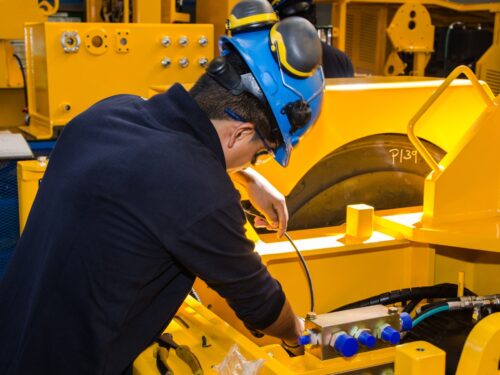
At Project7 Consultancy, we understand that quality is not just a department or a checklist; it is a culture that must permeate every level of an organisation. For senior leaders committed to driving excellence, fostering an inclusive quality culture is essential for long-term success and sustainability. Our approach combines industry best practices with insights from Dr Anthony Kenneson-Adams FIoL, a former Engineering Squadron Commander in the Royal Air Force (RAF), who is part of our senior leadership team. Anthony’s military background provides a unique perspective on how quality can be ingrained into the fabric of an organisation.
The Essence of Quality Culture
A quality culture is one where every individual, from top management to the frontline worker, is dedicated to maintaining the highest standards. It’s about creating an environment where quality is everyone’s responsibility and continuous improvement is a fundamental part of the organisational ethos. When we ask Anthony about what he feels are the three core elements to build and sustain quality as an inclusive culture, Anthony cites Training, Communication, and Commitment.
Training: The Backbone of Quality
In the RAF, even simple tasks like servicing anti-collision lights were critical to flight safety, demonstrating that quality starts with the basics,” says Anthony.
Effective training is the cornerstone of a robust quality culture. It equips employees with the knowledge and skills necessary to perform their tasks to the highest standards. Reflecting on Anthony’s military background, where training is rigorous and comprehensive, we emphasise the importance of precision and responsibility from the start.
- Customised Training Programs: Tailor training to meet the specific needs of your workforce.
- Continuous Learning: Encourage a culture of continuous learning. Regularly update training materials to reflect the latest industry standards and technological advancements.
- Practical Application: Ensure training includes practical applications. Hands-on experience reinforces theoretical knowledge and helps employees understand the real-world implications of their work.
Communication: The Key to Engagement
Open and effective communication is vital in fostering a quality culture. It ensures that everyone is on the same page and that potential issues are addressed proactively. In the RAF, Anthony learned the importance of open communication channels and the confidence to voice concerns without fear of retribution, which were critical in maintaining engineering quality standards.
- Transparent Channels: Establish transparent communication channels where employees feel safe to voice concerns and provide feedback without fear of retribution.
- Regular Updates: Keep the team informed about quality goals, progress, and any changes in procedures. Regular updates help maintain focus and alignment.
- Inclusive Dialogue: Promote an inclusive dialogue where ideas and suggestions are welcomed. Encourage employees at all levels to participate in discussions about quality improvements.
Commitment: The Foundation of Excellence
Commitment to quality must start at the top and cascade throughout the organisation. Leaders play a critical role in setting the tone and demonstrating their dedication to quality. In the RAF, there is no dedicated quality manager or department; instead, a culture of individual and collective commitment to quality permeated every rank and role. Anthony’s experience underscores the importance of this collective responsibility.
- Lead by Example: Senior leaders should exemplify quality in their actions and decisions. This sets a powerful precedent for the rest of the organisation.
- Integrated Quality Goals: Integrate quality goals into the overall business strategy. Ensure that quality is a key performance indicator for all departments.
- Empower Employees: Empower employees by providing the necessary resources and autonomy to make decisions that enhance quality. Trust and support from leadership foster a sense of ownership and responsibility.
Implementing Quality Culture in Your Organisation
Implementing a quality culture requires a strategic approach and consistent effort. Here are some steps senior leaders can take to embed quality into their organisation’s fabric:
- Assessment and Benchmarking: Start with a thorough assessment of your current quality practices. Benchmark against industry standards to identify areas for improvement.
- Strategic Planning: Develop a strategic plan that outlines clear quality objectives and the steps needed to achieve them. Ensure alignment with the overall business strategy.
- Engagement and Buy-In: Engage employees at all levels in the quality journey. Secure buy-in by highlighting the benefits of a quality culture, such as improved performance, customer satisfaction, and competitive advantage.
- Monitoring and Evaluation: Implement robust monitoring and evaluation systems to track progress. Regularly review and adjust strategies to ensure continuous improvement.
At Project7 Consultancy, we believe that an inclusive quality culture is the foundation of operational excellence. By focusing on training, communication, and commitment, senior leaders can transform their organisations and achieve sustainable success. Quality should not be seen as an isolated function but as an integral part of every process and decision.
By embedding these principles into your organisation, and drawing on insights from leaders like Dr Anthony Kenneson-Adams with a rich military background, you can drive performance, enhance customer satisfaction, and secure a competitive advantage in the marketplace.



